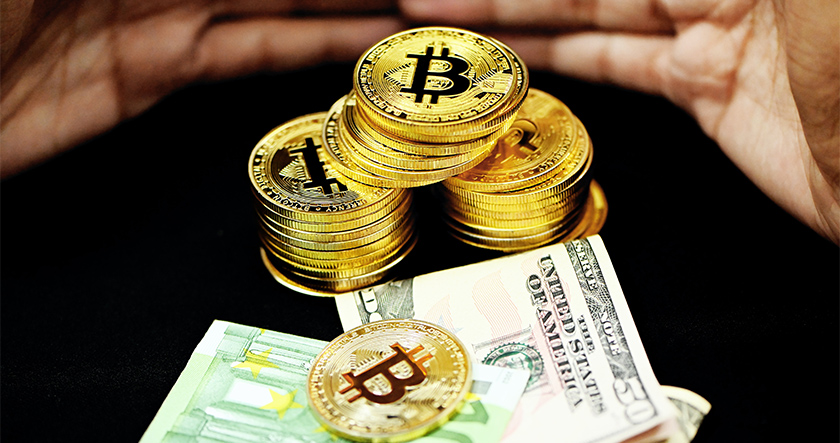Can AI Crypto Change The Industry?
The Hype Around AI Warrants Closer Inspection


AI has been trending since chatGPT was introduced. But how does it relate to cryptocurrency? Are stocks becoming legacy speculative assets now that hot crypto projects are easy to invest in? Perhaps akin to bonds, whose market has collapsed while crypto staking offers good yields and actually more safety?
Will “AI Crypto” Change the Industry?
 Would we be the most skeptical digital IRA provider if we weren’t sold on the AI thing? Maybe. The thing is, we’re so used to seeing revolutionary technology in the form of cryptocurrencies that barely anything moves our cursors anymore.
Would we be the most skeptical digital IRA provider if we weren’t sold on the AI thing? Maybe. The thing is, we’re so used to seeing revolutionary technology in the form of cryptocurrencies that barely anything moves our cursors anymore.
The hype around AI warrants closer inspection. It’s February, and AI is already being called the top trend of 2023. Are we that sure nothing interesting will happen over the next 10 months? If you’re being told what is currently called “artificial intelligence” right now is akin to Schwarzenegger’s memorable performance in Terminator, you should be skeptical too.
As of right now, AI represents nothing more than a bunch of specific instructions on how to act. It’s no different than the operating system or the program you’re using. Even chat bots are very dated.
The thing is, a lot of people don’t care, and they want to invest in it. This is where the crypto investor with any kind of crypto exposure wants to start paying attention. Walter Teng, vice president of Digital Asset Strategy at Fundstrat Global Advisors, had this to say about the crypto AI investment fad:
“Seems like [FOMO], boredom, degeneracy, wanting to make it back.”
A little gloomy. An analysis of search engine results shows that “how to invest in AI” is trending. Well, how do you actually invest in AI? There’s stocks… Believe it or not, not everyone has access to the NYSE. For many, stocks aren’t an option whether due to accessibility, familiarity, lack of company transparency and so on.
The only other alternative is crypto, and the subsequent “crypto AI” searches show it. Compared to stocks, but also in general, crypto is easy to invest in and very easy to hold. You can’t exactly store stocks on a hardware ledger that nobody but you has access to. In turn, AI-related tokens have blown up in value. What will become of them, and the whole AI thing?
The struggle to replace human labor with that of the machine variety has been less than fruitful. Even the most advanced machine in any factory still needs human operation. So-called smart cars crash into each other. Algorithms need constant human updating. And when we get to more exotic things like customer support, you might as well be interacting with a brick wall.
So the only thing we can glean so far from this whole thing is that crypto is taking some kind of space next to the stock market. It wants a seat next to it, one that says: “I offer speculative investment.”
The truly remarkable thing, however, is that this is pretty far from crypto’s base use case. It’s far even from second-row uses: when crypto developed a correlation with stocks, Bitcoin was somewhat amusingly criticized for not being a good store of value compared to gold. While Bitcoin obviously should protect wealth to an extent, its real use is that of a decentralized currency. Merely operating well in this capacity would be enough for many.
Yet crypto is so functional and so operational that investors can’t help but find other uses for it. Nevermind transactions: first, we wanted to store wealth in it securely. Now, we want something akin to growth stocks.
So we’d say Teng is maybe missing out on some truly positive developments here in his commentary. It’s as if speculation about whether crypto is hear to stay or Bitcoin is truly, finally, undeniably dead have evaporated.
Some years ago, the mere introduction of cryptocurrencies brought on the term “legacy finance”. While traditional finance is still there and doing its thing, that was a big deal to us. Are stocks becoming legacy speculative assets now that hot crypto projects are easy to invest in? Perhaps akin to bonds, whose market has collapsed while crypto staking offers good yields and actually more safety? We don’t know, but we like the idea.
Can AI Crypto Change The Industry?
BROUGHT TO YOU BY:





 Before we begin to unravel what’s going on with the banking system and how it affects crypto, let us first quote Trezor Bitcoin analyst Josef Tětek
Before we begin to unravel what’s going on with the banking system and how it affects crypto, let us first quote Trezor Bitcoin analyst Josef Tětek 